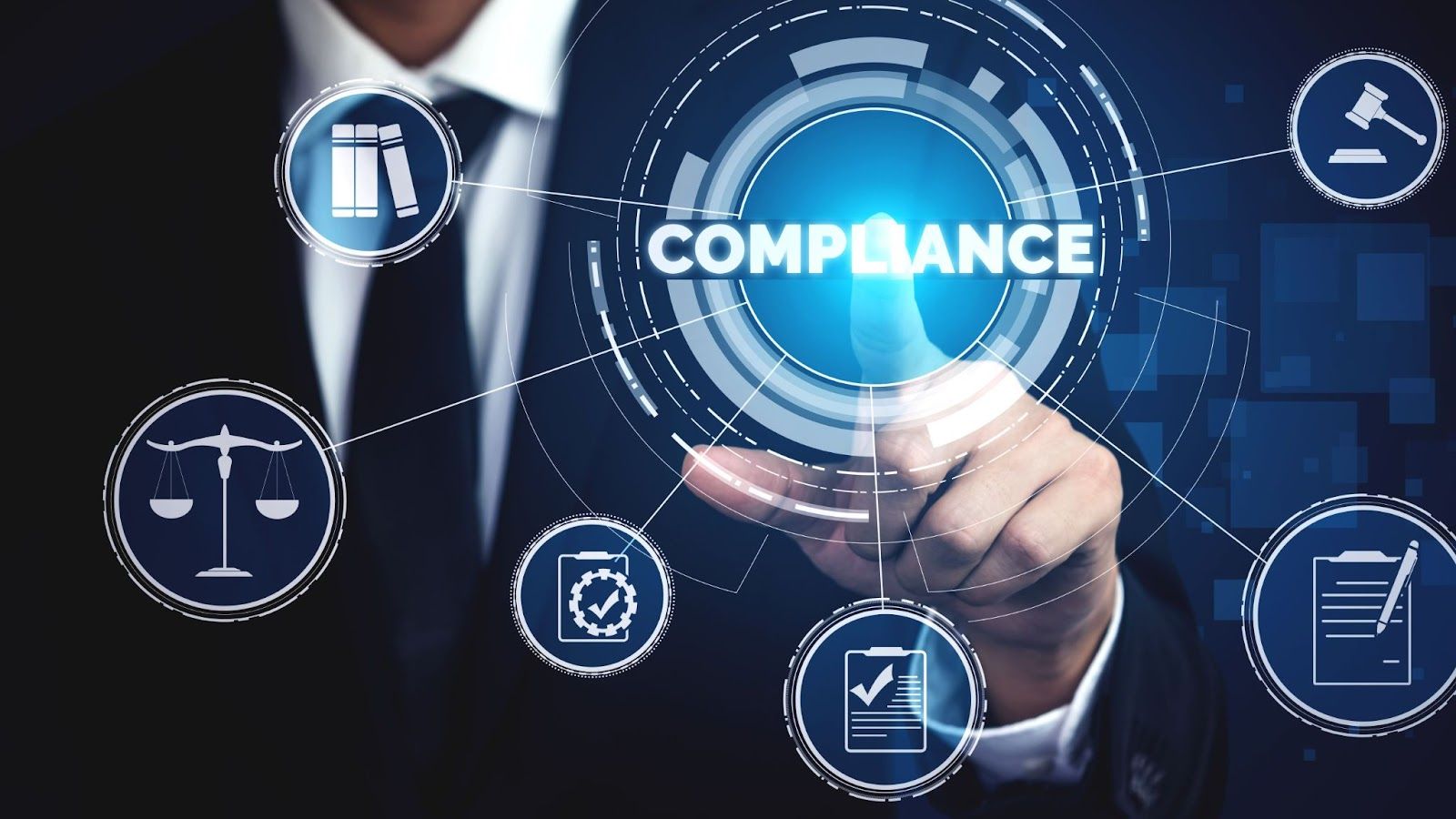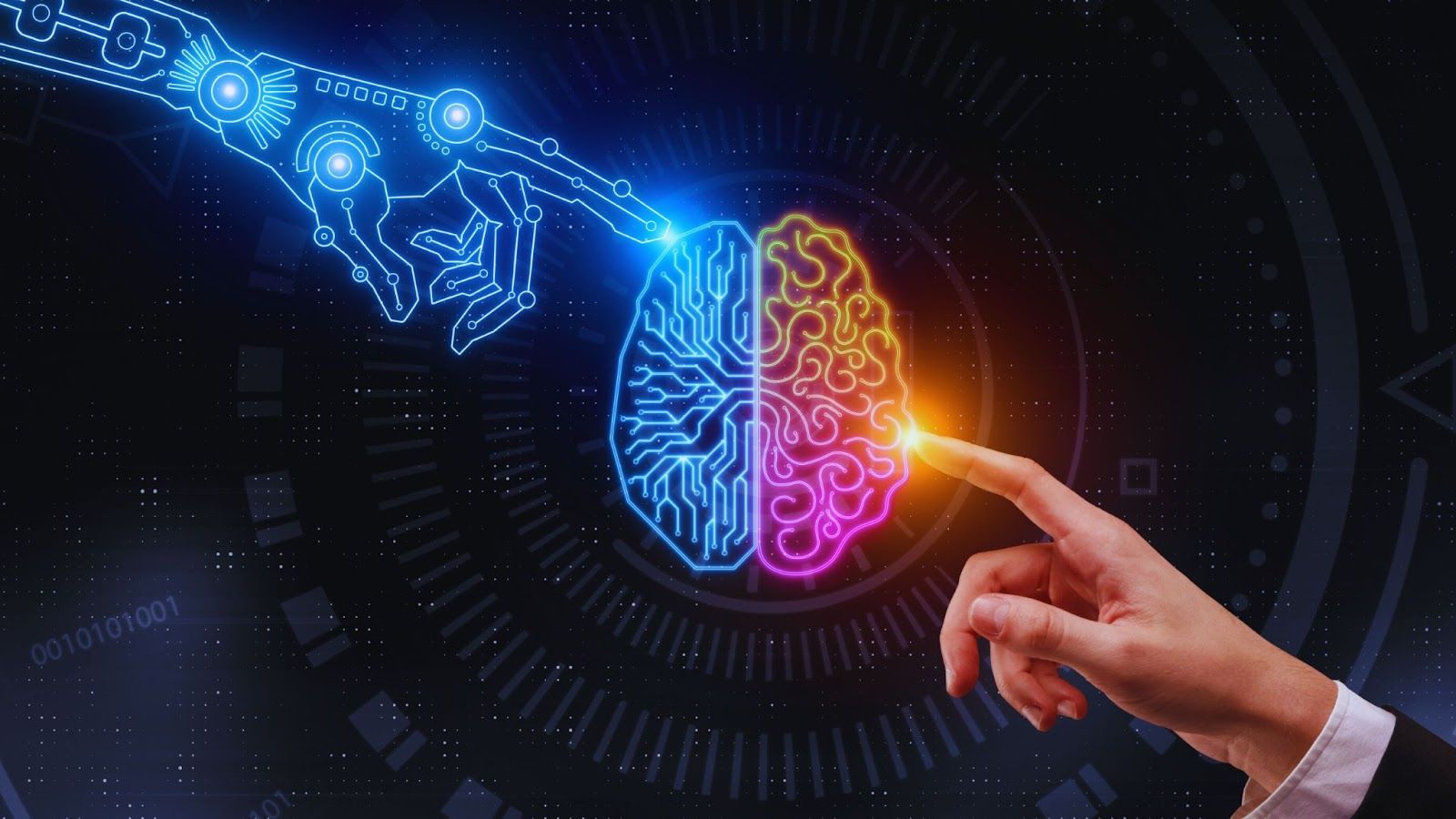Industry Insights
How AI is Revolutionizing Compliant Care in Healthcare
How AI is Revolutionizing Compliant Care in Healthcare
Sep 29, 2024
Sep 29, 2024
Sep 29, 2024
6
Min Read
Min Read


What is Healthcare Compliance
Healthcare compliance refers to the process of adhering to laws, regulations, and guidelines that govern the healthcare industry. It involves ensuring that healthcare organizations and professionals follow both internal policies and external legal requirements related to patient care, privacy, billing, and safety. Compliance is essential for avoiding legal penalties, maintaining ethical standards, and ensuring high-quality patient care.
Compliance in the healthcare industry is crucial, as it ensures that patient care is safe, effective, and in accordance with regulations and standards. However, navigating the complex regulatory landscape can be a daunting task for healthcare organizations. This is where artificial intelligence (AI) is stepping in to help streamline and enhance compliance efforts.
Why is Healthcare compliance Important?
Healthcare compliance is essential for several reasons that directly impact the quality of patient care, the financial health of organizations, and the trust in the healthcare system. Here's why it matters:
Ensures Patient Safety and Quality of Care
Compliance with healthcare regulations helps ensure that medical facilities provide a safe and effective environment for patient care. Following best practices and legal standards minimizes errors, reduces harm, and improves patient outcomes.
Protects Patient Privacy
Compliance with privacy laws, such as HIPAA in the U.S., ensures that sensitive patient information remains confidential. Safeguarding patient data is crucial for maintaining trust between patients and healthcare providers.
Prevents Legal and Financial Consequences
Non-compliance can result in hefty fines, legal penalties, and even the loss of licenses or certifications. Adhering to healthcare regulations mitigates the risk of lawsuits, criminal charges, or government investigations.
Ensures Proper Billing and Avoids Fraud
Billing and coding compliance ensures that healthcare organizations submit accurate claims to insurance companies, Medicare or Medicaid. It also reduces the risk of fraudulent claims, overbilling, or coding errors that can lead to audits, penalties, or financial losses.
Promotes Ethical Standards and Public Trust
Following compliance standards fosters a culture of ethics and accountability within healthcare organizations. Healthcare compliance helps build trust with patients, staff, and regulatory bodies, as well as within the broader community.
Reduces Risk of Workplace Injuries and Liability
Adhering to workplace safety regulations, such as OSHA guidelines, helps protect healthcare workers from potential hazards and reduces the risk of liability for workplace injuries.
Facilitates Regulatory Audits and Accreditation
Compliance with industry standards and regulations is essential for passing audits and obtaining accreditations from organizations like The Joint Commission. These certifications are often necessary for reimbursement by government programs and insurance companies.
Current Challenges in Healthcare Compliance
Healthcare organizations face a myriad of compliance issues, ranging from billing and coding errors to ensuring patient data privacy and security. Keeping up with ever-changing regulations and standards can be a daunting task, especially for large hospitals and health systems. Traditional compliance methods, such as manual audits and checklists, are often time-consuming and prone to human error, making it difficult for organizations to stay in compliance.

How AI is Changing Healthcare Compliance
AI technologies, such as machine learning and natural language processing, are revolutionizing healthcare compliance by automating and optimizing processes. Machine learning algorithms can analyze vast amounts of data to detect patterns and anomalies, flagging potential compliance issues before they escalate. Natural language processing enables AI systems to interpret and extract key information from regulatory documents and
guidelines, helping organizations stay ahead of compliance requirements.
Several healthcare organizations have already successfully implemented AI solutions to enhance their compliance efforts. For example, predictive analytics tools can forecast potential compliance risks based on historical data, allowing organizations to proactively address issues before they arise. AI-powered chatbots can also provide real-time assistance to staff members, answering compliance-related queries and guiding them through complex regulations.
Ethical and Legal Implications of AI in Healthcare Compliance
While AI holds great promise for improving healthcare compliance, there are ethical and legal considerations that organizations must take into account. Relying too heavily on AI for compliance decisions without human oversight can have serious consequences, leading to errors or biases in decision-making. It is essential for organizations to strike a balance between AI automation and human judgment to ensure ethical and fair compliance practices.
Furthermore, the use of AI in healthcare compliance raises concerns about data privacy and security. Organizations must adhere to strict regulations, such as the Health Insurance Portability and Accountability Act (HIPAA), to protect patient data from breaches or misuse. Implementing AI solutions that prioritize data encryption and access controls is crucial to maintaining compliance with regulatory requirements.
The Future of AI in Healthcare Compliance
The future of AI in healthcare compliance looks promising, with continued advancements in technology and regulatory frameworks. AI is expected to further streamline compliance processes, enabling organizations to proactively address risks and ensure adherence to regulations. As AI algorithms become more sophisticated and capable of handling complex compliance tasks, healthcare organizations can expect greater efficiency, accuracy, and transparency in their compliance efforts.
However, challenges still remain, such as the need for ongoing training and education to ensure that staff members are equipped to work alongside AI systems. Organizations must also remain vigilant about potential ethical implications of AI in compliance, such as algorithmic bias or discrimination. By fostering a culture of transparency, accountability, and ethical decision-making, healthcare organizations can harness the full potential of AI to revolutionize healthcare compliance.

Conclusion
AI is poised to revolutionize healthcare compliance by improving efficiency, accuracy, and effectiveness. By leveraging AI technologies, healthcare organizations can navigate the complex regulatory landscape with greater ease and confidence. As AI continues to evolve and mature, organizations must remain vigilant about ethical and legal considerations to ensure that compliance practices uphold patient safety and trust.
As we look towards the future, the integration of AI into healthcare compliance promises to drive innovation and transformation in the industry. By embracing AI as a powerful tool for enhancing compliance efforts, healthcare organizations can prioritize patient care, safety, and regulatory adherence in a rapidly evolving healthcare landscape.
What is Healthcare Compliance
Healthcare compliance refers to the process of adhering to laws, regulations, and guidelines that govern the healthcare industry. It involves ensuring that healthcare organizations and professionals follow both internal policies and external legal requirements related to patient care, privacy, billing, and safety. Compliance is essential for avoiding legal penalties, maintaining ethical standards, and ensuring high-quality patient care.
Compliance in the healthcare industry is crucial, as it ensures that patient care is safe, effective, and in accordance with regulations and standards. However, navigating the complex regulatory landscape can be a daunting task for healthcare organizations. This is where artificial intelligence (AI) is stepping in to help streamline and enhance compliance efforts.
Why is Healthcare compliance Important?
Healthcare compliance is essential for several reasons that directly impact the quality of patient care, the financial health of organizations, and the trust in the healthcare system. Here's why it matters:
Ensures Patient Safety and Quality of Care
Compliance with healthcare regulations helps ensure that medical facilities provide a safe and effective environment for patient care. Following best practices and legal standards minimizes errors, reduces harm, and improves patient outcomes.
Protects Patient Privacy
Compliance with privacy laws, such as HIPAA in the U.S., ensures that sensitive patient information remains confidential. Safeguarding patient data is crucial for maintaining trust between patients and healthcare providers.
Prevents Legal and Financial Consequences
Non-compliance can result in hefty fines, legal penalties, and even the loss of licenses or certifications. Adhering to healthcare regulations mitigates the risk of lawsuits, criminal charges, or government investigations.
Ensures Proper Billing and Avoids Fraud
Billing and coding compliance ensures that healthcare organizations submit accurate claims to insurance companies, Medicare or Medicaid. It also reduces the risk of fraudulent claims, overbilling, or coding errors that can lead to audits, penalties, or financial losses.
Promotes Ethical Standards and Public Trust
Following compliance standards fosters a culture of ethics and accountability within healthcare organizations. Healthcare compliance helps build trust with patients, staff, and regulatory bodies, as well as within the broader community.
Reduces Risk of Workplace Injuries and Liability
Adhering to workplace safety regulations, such as OSHA guidelines, helps protect healthcare workers from potential hazards and reduces the risk of liability for workplace injuries.
Facilitates Regulatory Audits and Accreditation
Compliance with industry standards and regulations is essential for passing audits and obtaining accreditations from organizations like The Joint Commission. These certifications are often necessary for reimbursement by government programs and insurance companies.
Current Challenges in Healthcare Compliance
Healthcare organizations face a myriad of compliance issues, ranging from billing and coding errors to ensuring patient data privacy and security. Keeping up with ever-changing regulations and standards can be a daunting task, especially for large hospitals and health systems. Traditional compliance methods, such as manual audits and checklists, are often time-consuming and prone to human error, making it difficult for organizations to stay in compliance.

How AI is Changing Healthcare Compliance
AI technologies, such as machine learning and natural language processing, are revolutionizing healthcare compliance by automating and optimizing processes. Machine learning algorithms can analyze vast amounts of data to detect patterns and anomalies, flagging potential compliance issues before they escalate. Natural language processing enables AI systems to interpret and extract key information from regulatory documents and
guidelines, helping organizations stay ahead of compliance requirements.
Several healthcare organizations have already successfully implemented AI solutions to enhance their compliance efforts. For example, predictive analytics tools can forecast potential compliance risks based on historical data, allowing organizations to proactively address issues before they arise. AI-powered chatbots can also provide real-time assistance to staff members, answering compliance-related queries and guiding them through complex regulations.
Ethical and Legal Implications of AI in Healthcare Compliance
While AI holds great promise for improving healthcare compliance, there are ethical and legal considerations that organizations must take into account. Relying too heavily on AI for compliance decisions without human oversight can have serious consequences, leading to errors or biases in decision-making. It is essential for organizations to strike a balance between AI automation and human judgment to ensure ethical and fair compliance practices.
Furthermore, the use of AI in healthcare compliance raises concerns about data privacy and security. Organizations must adhere to strict regulations, such as the Health Insurance Portability and Accountability Act (HIPAA), to protect patient data from breaches or misuse. Implementing AI solutions that prioritize data encryption and access controls is crucial to maintaining compliance with regulatory requirements.
The Future of AI in Healthcare Compliance
The future of AI in healthcare compliance looks promising, with continued advancements in technology and regulatory frameworks. AI is expected to further streamline compliance processes, enabling organizations to proactively address risks and ensure adherence to regulations. As AI algorithms become more sophisticated and capable of handling complex compliance tasks, healthcare organizations can expect greater efficiency, accuracy, and transparency in their compliance efforts.
However, challenges still remain, such as the need for ongoing training and education to ensure that staff members are equipped to work alongside AI systems. Organizations must also remain vigilant about potential ethical implications of AI in compliance, such as algorithmic bias or discrimination. By fostering a culture of transparency, accountability, and ethical decision-making, healthcare organizations can harness the full potential of AI to revolutionize healthcare compliance.

Conclusion
AI is poised to revolutionize healthcare compliance by improving efficiency, accuracy, and effectiveness. By leveraging AI technologies, healthcare organizations can navigate the complex regulatory landscape with greater ease and confidence. As AI continues to evolve and mature, organizations must remain vigilant about ethical and legal considerations to ensure that compliance practices uphold patient safety and trust.
As we look towards the future, the integration of AI into healthcare compliance promises to drive innovation and transformation in the industry. By embracing AI as a powerful tool for enhancing compliance efforts, healthcare organizations can prioritize patient care, safety, and regulatory adherence in a rapidly evolving healthcare landscape.
Industry Insights
Industry Insights
Let’s Solve Your Biggest Challenges with AI
Looking to save time, reduce risks, stay compliant, or get ahead? Claris AI delivers real results—let’s talk!
Stay Informed on AI and Compliance
Subscribe to our newsletter for the latest updates on AI solutions, compliance strategies, and industry insights.
Stay Informed on AI and Compliance
Subscribe to our newsletter for the latest updates on AI solutions, compliance strategies, and industry insights.
Stay Informed on AI and Compliance
Subscribe to our newsletter for the latest updates on AI solutions, compliance strategies, and industry insights.
Stay Informed on AI and Compliance
Subscribe to our newsletter for the latest updates on AI solutions, compliance strategies, and industry insights.

